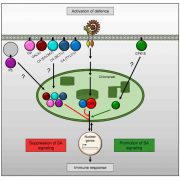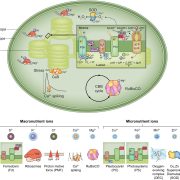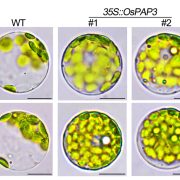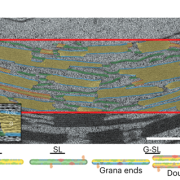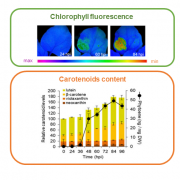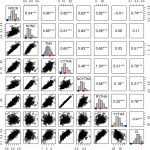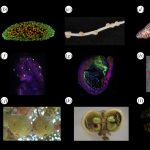Plastid stress signaling alters cell cycle progression (Cell Reports)
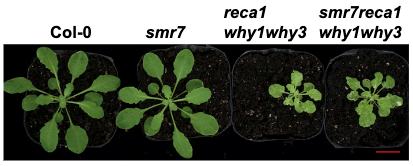
The chloroplast is in constant communication with the nucleus via so-called retrograde signaling. This signaling, which can take many molecular forms, is important for maintaining chloroplast function. In this paper by Duan et al. we learn that interfering with plastid DNA replication, either through mutation of plastid-targeted replication factors, or by specific drugs, leads to broad changes in leaf cell number, size and nuclear DNA content. The authors suggest that these changes are signaled through reactive oxygen species (ROS) generated as a consequence of plastid malfunction. They further propose the transcriptional regulator SOG1 as a down-stream effector of the ROS signal, which may modulate cell proliferation via altered gene expression. Although the study leaves somewhat open the relevance of plastid DNA damage per se, it provides an example of how the nuclear DNA replication cycle is sensitive to the state of the chloroplast. Further research is needed to work out the signaling pathway involved. (Summary by Frej Tulin @FrejTulin) Cell Reports 10.1016/j.celrep.2020.108019


